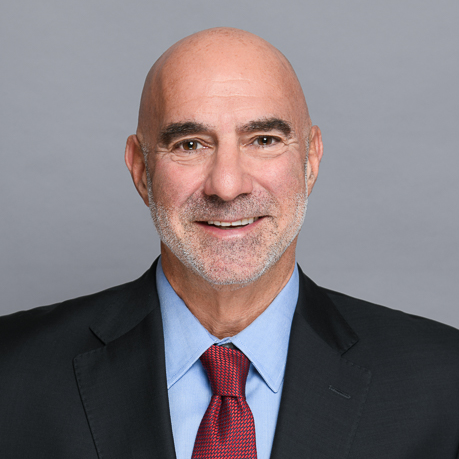
Juvenile Justice and Children's Charities: Bridging the Gap
Introduction
In today's society, the intersection of juvenile justice and children's charities stays an essential location that needs our attention. With countless children facing challenges in the juvenile justice system, different charitable organizations play a vital function in bridging the space between these young individuals and their capacity for a better future. This article explores the complexities surrounding juvenile justice, highlights the best kids's charities attending to these issues, and checks out volunteer opportunities that can make a significant difference.
Juvenile Justice and Kid's Charities: Bridging the Gap
Juvenile justice describes the legal framework dealing with minors who are implicated of committing crimes or participating in overdue behavior. Regrettably, many kids caught up in this system originated from disadvantaged Big Brothers Big Sisters backgrounds, do not have access to mental health resources, or just need assistance to reroute their lives. Kid's charities strive to offer support to these at-risk youth through numerous programs that use mentorship, education, rehabilitation, and community engagement. By understanding how these organizations operate and what they provide, we can much better value their role in bridging the space in between troubled youth and enthusiastic futures.
Understanding Juvenile Justice
What is Juvenile Justice?
Juvenile justice incorporates laws and treatments established to deal with youth offenders in a different way from adult criminals. The underlying approach is rooted in rehabilitation instead of penalty. The goal is to guide these young people far from additional criminal behavior while addressing their specific needs-- educationally, emotionally, and socially.
The Significance of Rehabilitation
Rehabilitation is critical within juvenile justice systems. Rather of just putting behind bars minors for their wrongdoings, programs are created to help them develop crucial life skills. When youths receive proper assistance-- such as therapy or tutoring-- they are most likely to reintegrate into society successfully.
The Function of Kid's Charities
What Are Kid's Charities?
Children's charities are nonprofit companies dedicated to enhancing the lives of children through different methods-- education, health care, emotional support, and promoting for children's rights. These organizations often work hand-in-hand with juvenile justice systems to guarantee that impacted youths receive essential services.
Best Kid's Charities Addressing Juvenile Justice
Several outstanding children's charities particularly concentrate on juveniles involved in the legal system. Here are some leading contenders:
Volunteer Opportunities: Making a Difference
Why Volunteer?
Volunteering uses an amazing way for individuals to connect with their communities while making a favorable influence on young lives dealing with difficulty within the juvenile justice system. Whether you have an interest in tutoring or offering mentorship, there are many volunteer chances available.
Finding Volunteer Jobs Near Me
If you're looking for ways to engage with children's charities in your area, consider these alternatives:

- Local Community Centers: Typically host programs requiring volunteers.
- High Schools: Lots of offer tutoring programs where you can help trainees stand out academically.
- Online Platforms: Websites like VolunteerMatch or Idealist can assist locate offering tasks tailored to your interests.
Volunteer Opportunities Pleasant Hill
Pleasant Hill citizens interested in contributing their time ought to check out local companies focusing on youth advocacy and rehab programs:
- Participating in community events arranged by local charities.
- Engaging with schools providing after-school tutoring sessions.
- Joining mentorship efforts focused on guiding at-risk youth.
Mental Health Assistance within Juvenile Justice
The Need for Mental Health Resources
Many juveniles experience psychological health obstacles stemming from trauma or socioeconomic disadvantages. Attending to mental health needs is critical; ignoring them perpetuates cycles of bad habits and recidivism amongst youth offenders.
How Children's Charities Address Mental Health
Numerous kids's charities include psychological health services into their programs:
Tutoring: An Important Tool for Rehabilitation
Why Tutoring Matters
Educational assistance plays an essential role in assisting juveniles prosper post-incarceration or throughout probationary periods-- tutoring offers structure while enhancing scholastic skills.
How You Can Get Involved
If you're considering volunteering as a tutor:
- Reach out to regional schools or libraries providing after-school research help.
- Join companies like Reading Partners which focus specifically on literacy improvement.
Success Stories: Transformative Journeys
Real-Life Effect of Charitable Work
Hearing success stories can function as inspiration for those aiming to contribute actively:
Case Study: Mark's Journey from Delinquency to Leadership
Mark was as soon as entangled in juvenile offenses however found solace through Big Brothers Big Sis-- a mentor assisted him toward academic opportunities leading him eventually to college graduation.

FAQs
1. What types of volunteer chances exist within children's charities?
There are many alternatives offered consisting of tutoring sessions, mentoring programs, occasion company, fundraising activities, and administrative help roles.
2. How do I discover offering tasks near me?
You can check community bulletin boards, websites like VolunteerMatch.org or Idealist.org which list regional not-for-profit needs based on your location.
3. What credentials do I require to volunteer?
Most kids's charities welcome volunteers despite professional backgrounds; nevertheless, having experience dealing with youth or knowledge concerning psychological health could be beneficial.
4. Can offering actually make a difference?
Yes! Volunteers often play an essential role by supplying guidance and support that might change lives favorably with time-- in some cases even saving them from going into cycles of crime again!
5. How do children's charities address mental health concerns?
Many organizations incorporate therapy services into their programs by using licensed therapists who work straight with kids facing psychological challenges emerging from trauma or neglect.
6. What is the very best way for somebody new to get involved?
Start little! Go to orientation sessions used by regional nonprofits where you can find out about available roles then choose one that resonates most deeply with you!

Conclusion
In conclusion, bridging the space in between juvenile justice and kids's charities is not only important however possible through collective efforts by people ready to make a difference in young lives facing misfortune every day. By engaging with these nonprofits as volunteers-- whether through tutoring sessions or mentorship-- you enter into an impactful service assisting shape more vibrant futures for susceptible youths caught up within difficult situations surrounding juvenile offenses today! By adopting proactive strategies toward participation together with active contributions whenever possible lets all of us play our part making sure every child has access both educationally & & mentally towards flourishing rather merely enduring previous difficulties encountered throughout life experiences thus far-- let us unite together stand up advocate change creating pathways towards hope remediation durability teamwork neighborhood spirit love empathy shared among neighbors!